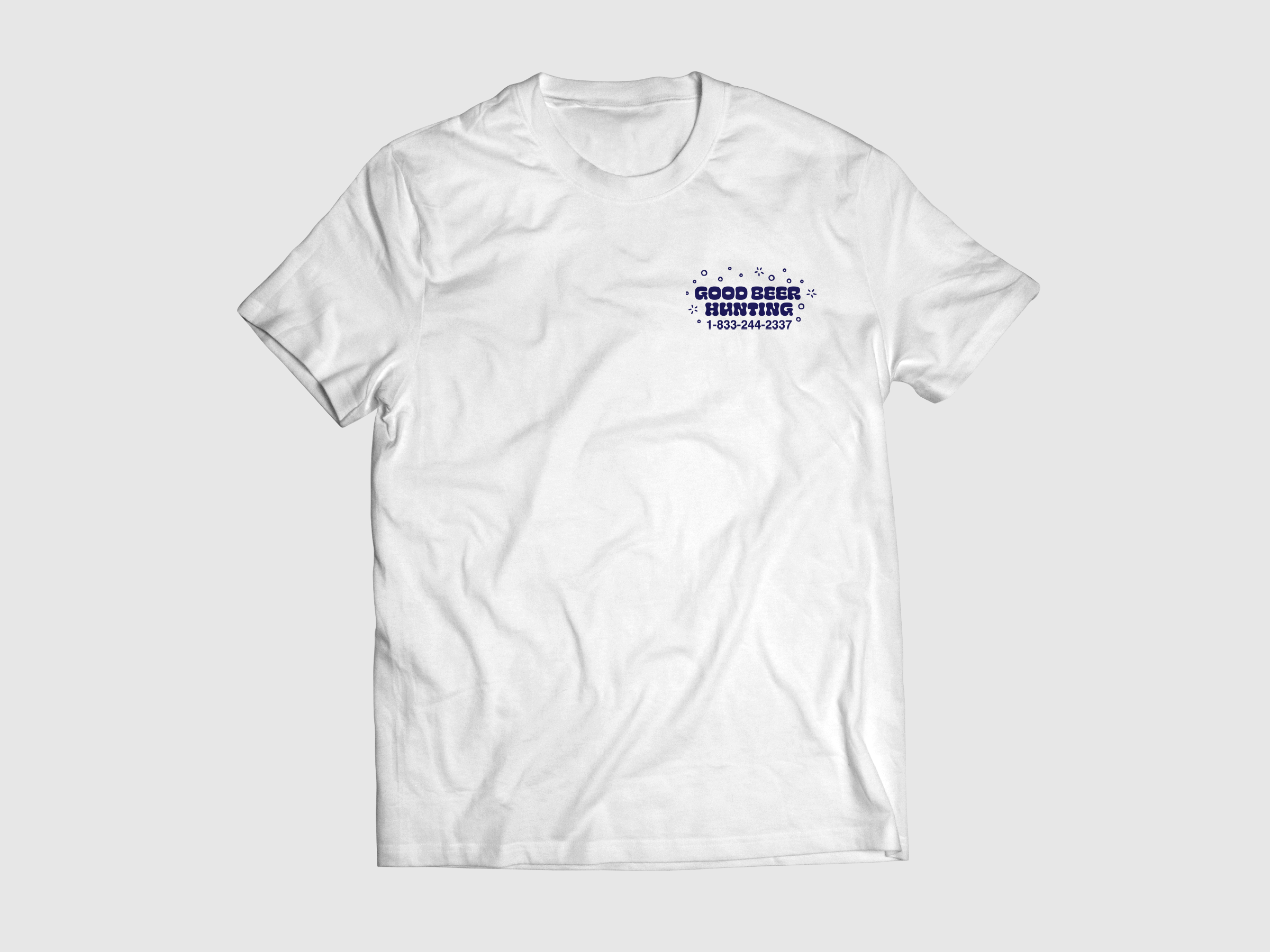I didn’t know anything about whiskey, let alone bourbon. But now I have a cabinet with a pretty nice selection of bourbons. And there’s only one reason why I have these bottles in my possession: barrel-aged beers. As brewers and their beers taught me about the flavors certain barrels and spirits impart on beers I became fascinated with the original liquors.
Is this a problem? Depends on who you ask! AB Inbev's recent video featuring their High End leaders from acquired breweries points out that the larger beer category is losing ground to spirits and wine one percentage point at a time — something Walt Dickinson of Wicked Weed called an "Armanda" as if to identify an existential threat to the homeland coming ashore. Meanwhile many craft-minded drinkers like myself reach for local, artisanal alcoholic beverages of all sorts, some even made by local craft breweries. Are we the problem? Or are we part of a different future for "craft" in general? Should "craft" abandon their categories in favor of a wider spectrum of small, independent businesses within alcohol in general?
This week the Fervent Few discussed how these other beverage options might be affecting their local breweries, the way they drink, and what the future of craft alcohol might look like.
“This is a huge challenge, especially because in states like Colorado we are only able to hold a brewing license or a vinters license or a distillers license. So as a producer it is much more difficult to adapt to the changing consumer preferences. Having said that, beer has a wide flavor profile it can hit, so looking to mimic or work with popular wine flavors or cocktail flavors will be interesting. Imagine shrubs being created for Berliner weisses or other beers.”
“I enjoy sampling products from craft distilleries in the Greater Boston Area, and have found they've worked well with brewers here. We have a place here called The Fermentation District, with two breweries and one distillery, each one driving traffic to the others. Boston Harbor Distillery even has a line of spirits distilled from Samuel Adams beer!”
"I have wine tastings weekly with other brewers / bar owners. The rise of natural wines and the many techniques that are transferable to barrel aging / spontaneous / blending / sour beers is incredible. To write this off is to ignore the many brewers who work with wine and spirit producers as well as those who are doing all three under one brand / roof. It is a natural progression. The closest brewery to me has Brett fermented white wine aging in wood as well as amphoras of spontaneous red. My Assistant brewer has multiple spontaneous wines on the go. Geographic location will play a big part (we are an hour from wine country and most of our wood comes from there.
Many brewers have direct relationships with wineries and distilleries for sourcing barrels. Many of those are from the same region, allowing a product story to be told that has elements of local, community, collaboration and also cross-marketing - which is what I see as a main point here. Funnily enough, all things many breweries are already doing with each other.
Artisanal wines and spirits are (from places I've visited) seeing massive growth and there is very likely a relationship to the growth of 'craft beer' with consumers looking for local and new flavor experiences.”
“ On the regional/national side, I could see the growth of wine/spirits being somewhat of a threat. But with that said I think that the erosion of their hold on broader markets by local breweries will be the larger threat in the long run. The sales division between beer/wine/spirits will continue to shift depending on what is in vogue, but I have a harder time seeing a shift to back to national from local.”
“In Ireland we’re doing a bit of caskmates. Brewers and whiskey producers passing barrels back and forth to gain flavours being imparted to each other. As whiskey is just distilled beer with some good attention paid to ageing, I could see that happening but I’m a brewer, I know beer and it’s what I’m good at.
I don’t want to insult a wine or spirit producer by arriving to market with a substandard product. This is happening currently in our beer market as any businessman is arriving in to start a brewery without much knowledge. It’s bad for our overall market so I’m not going to do it to someone else’s market.
Collaborations represent how a small community of people can help each other out in a really epic manner.”
“In my area, from a consumer standpoint, there doesn't seem to be a ton of competition against each other. We have some top notch craft spirits that collaborate a decent amount with local craft breweries. I believe it was last year that Pennsylvania passed a law to allow the three to sell each other's PA goods in their taprooms without a proper liquor license. So you'll often see a brewery that will have one handle for the local cidery and one or two for a local winery, with a couple of the local spirits behind the bar. You'll also see a few local beers available at the wineries around town. It seems as though most people stick to what they like and that this is just a way to get more people into the taproom by trying to eliminate the excuse of "No thanks. I don't drink __ (Beer, Wine, Spirits)"”
“It's all about making the connection with the producer or product. Sometimes it's living close to where the product is made. Sometimes it's about enjoying a unique aspect of the production. I think part of the reason I love beer is because there are so many local breweries that I can make that connection with.
And if the Chicagoland distillery/brewery ratios were flipped I'd probably be really into spirits rather than beer.
It's not even restricted to alcohol for me. If Solemn Oath were to say "Hey we make beer and also we're really into cutlery so we started making cutlery" I'd probably buy that too. It's mostly about supporting local businesses when I can.”
“I feel like using the three categories of consumers the Brewers Association came up with in discussing the label is a helpful framework: those who care about where their beer comes from and likely know who is independent or not right now... perhaps craft beer and spirits/wine have always been connected and "in competition" with one another. Speaking for myself that's true. For there to be category decline the incremental competition has to be more than in the past and not sure if that's necessarily true for this group.
The "decline" describes a net effect with many increases and decreases of varying magnitudes. Rallying breweries around the decline doesn't help all equally (and never will, which is ok) but probably speaks more of the behaviors of the 2nd group - "I drink macro but am now interested in craft so please help educate me." It's a large population and possibly large enough to impact the overall trends.”
“I've been arguing for a while that craft should only care about the "specialty market" to borrow a term from coffee. As far as I've seen, small roasters aren't tracking overall coffee consumption as a sign of their health - they're looking at their sliver of the market, which can grow even as the category declines. Craft, in this case, should just keep doing what's it's doing and run out the clock on big beer. They're the ones worried about the category. Unless you're Boston Beer or Yuengling, in which case you have to worry about both ends. Which is why I think craft brewers need to better differentiate the needs of the largest craft brewers from the smaller upstarts with profoundly different needs.”
It seems with a little collaboration the spirits and beer industries may be able to support each other and weather the storm. Sharing barrels, selling each other’s products, and educating consumers on the stories behind these products could be the thing that gives both industries what they need to thrive. I could write a few more words about this but Josh Chapman, who is about to open Black Narrows Brewing on Chincoteague Island, summed it up perfectly.
“I'd actually say in my experience it's a benefit to craft brewers to pursue and promote partnerships with small and independent wine and spirits producers. For one thing, in many cases we elevate the beer drinking experience both in how to describe beers (on our menus, labels, etc) and how we'd prefer consumers enjoy them. Additionally, it bolsters the narrative and import of 'small and independent' by expanding the consumer's view of the local and artisanal beverage options around them. I know for me personally, I've found myself enjoying the crossover of local vintners, distillers, and brewers, and the more I do so the more committed to those kinds of producers I become.”










